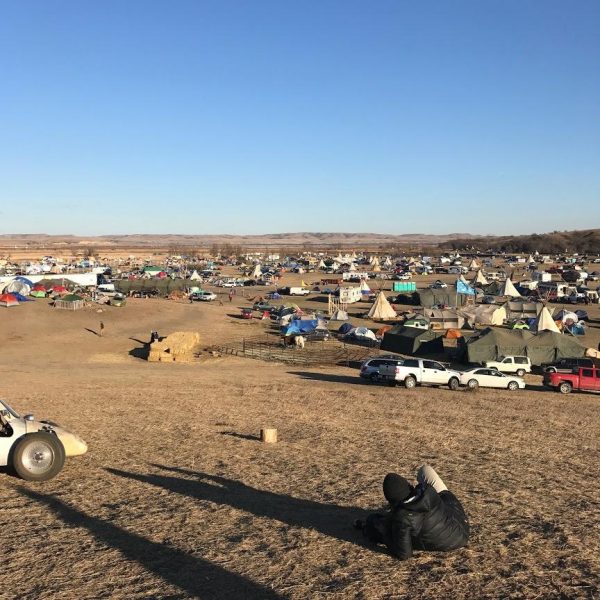
A delegation, made up of indigenous women from across Alaska, is at the Standing Rock Sioux Reservation in North Dakota to support opposition to the Dakota Access Pipeline.
Faith Gemmill, originally of Arctic Village, said that she couldn’t watch what was happening in Standing Rock from Alaska and felt she needed to support the water protectors.
“Every nation from Alaska is represented with our women,” Gemmill said.
Gemmill and other organizers said they decided to take a delegation of women to Standing Rock because women often take the front line of environmental issues and are the backbone of the communities and their struggles.
“Mothers, grandmothers, sisters, aunties, daughters; we have a very critical role as caretakers,” Gemmill said.
Members of the group were chosen because of the skills each brings to the camp. Some are spiritual leaders and healers. Gemmill said some will work in the medical tents or in the kitchen. Some might even be in strategy sessions and on the front lines of the conflict.
“We’re going to be doing whatever is needed to relieve the people who have been here,” Gemmill said.
Some of the protectors have been at Standing Rock for several months and Gemmill said they are hoping to help relieve those who have been camped out.
“Any kind of fights like this, you need reinforcements behind you to come in and take the line when you’re tired,” Gemmill said.
Gemmill also said this movement is important to Alaskans.
“The ground is literally melting beneath us; the permafrost is melting,” she said. “We have communities that are looking at being relocated – they need to be relocated like right now and no one is helping these communities.”
Gemmill works with the non-profit Resisting Environmental Destruction on Indigenous Land, based in Anchorage.
REDOIL is a sister organization of Indigenous Environmental Network and it also works with Indigenous Peoples Power Project. Gemmill said the group is working with many ally organizations who help with training and direct actions on the front line.
“So that’s the capacity I’m here, but mainly as mom, grandmother,” Gemmill said.




